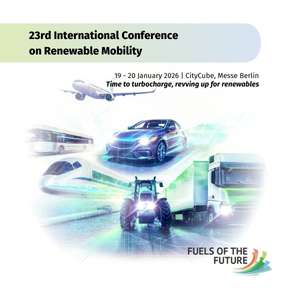Greenpeace blocks IOI’s palm oil refinery at Port of Rotterdam
Activists from Greenpeace blocked entry to a palm oil refinery at the Port of Rotterdam for seven hours on Tuesday due to claims of the plant being linked to Indonesian environmental concerns.
A report by the environmental group links IOI, the owner of the Croklaan palm oil refinery, to deforestation, wildfires, and human rights violations including using child labour in Indonesia.
The ten activists blocked the refinery’s entrance with tree trunks and stopped docking at the port with kayaks and the Greenpeace ship Esperanza, which prevented unloading palm oil destined for the facility.
After several hours, the police moved in and forcibly removed the activists who had chained themselves to the logs and the facility fence and arrested 13 people, The Guardian reports.
The Croklaan facility processes 750,000 tonnes of palm oil annually, which is used to produce biodiesel and other products for the Western European and US markets.
But Greenpeace, in its report titled A Deadly Trade-Off, claims that up to two-thirds of the palm oil processed at Croklaan comes from third party suppliers such as Korindo, Eagle High, and the Indofood/Salim Group, which have contributed to the destruction of a quarter of Indonesia’s rainforests in the past two decades.
Between July and October 2015, more than 2 million hectares of Indonesian forest and peatland burned, equalling in size to an area half the size of the Netherlands, Greenpeace says.
The resulting smoke haze caused an estimated 100,300 premature deaths across South East Asia in 2015, the organisation claims citing a Harvard and Columbia study.
Greenpeace bases its allegations on IOI supply data, concession maps, Nasa fire hotspot data, deforestation alerts, public reports, and official Roundtable on Sustainable Palm Oil complaints.
Additionally, the report links Eagle High and Indofood to exploitation of workers, including using child labour and excessive use of force by state security forces.
‘Industry-wide collaboration critically needed’
"Palm oil trader IOI is unknown to the general public. This serves the company well, as it can get away with practices that could not bear public scrutiny," said Annisa Rahmawati, forest campaigner at Greenpeace Indonesia.
"We are not anti-palm oil, but we know its production can and must be sustainable. It is entirely possible to grow the palm oil industry without clearing or burning more forest," she continued.
IOI said in a statement on Tuesday that it “acknowledges” the report from Greenpeace and “shares a similar top line analysis” of the industry challenges related to ensuring compliance by third party suppliers.
“It is clear that despite the many achievements of several companies’ ‘No Deforestation, No Planting on Peat and No Exploitation’ policies, industry-wide collaboration is critically needed,” IOI CEO Dato’ Lee Yeow Chor wrote in the statement.
“IOI fully accepts its own responsibilities as a producer and trader of palm oil. In this respect, IOI accepts Greenpeace’s challenge to use its voice and influence to help achieve the outcomes both IOI and Greenpeace desire.”
But Greenpeace has dismissed IOI’s statement as an attempt to pass responsibility away from the company and not break contracts with the named suppliers, according to The Guardian.
“Unless IOI is willing to take these decisive, measurable actions to clean up its supply chain, its commitment to ‘use its voice and influence’ is meaningless. A failure to act is a betrayal of the millions of people affected each year by land conflicts, forced labour, and pollution from forest fires as a result of the actions of IOI and its suppliers,” Rahmawati said.
More action against IOI can be expected in the near future unless the company and Greenpeace manage to reach a mutually satisfactory agreement.
This article was written by Ilari Kauppila, deputy editor at Biofuels International











